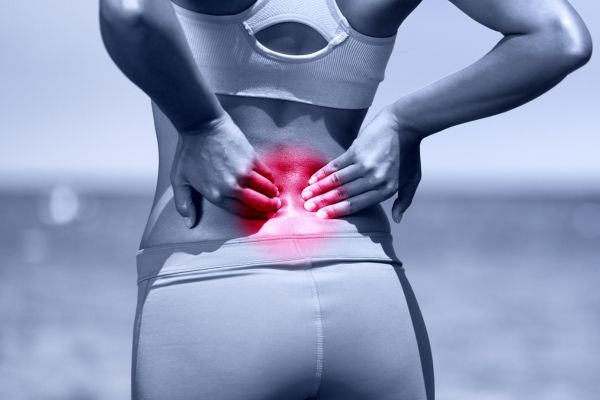
Could Bacterial Infection Contribute to Lower Back Pain?
Infection of the disc may be a factor in spinal disc degeneration and lower back pain, according to the latest TwinsUK research.
Back pain, specifically low back pain, is now the world’s leading cause of disease. It is a huge problem globally and is associated with intervertebral disc degeneration, which is the breakdown of one or more of the cushioned discs that separate the bones of the spine. This causes pain in the back or neck and frequently in the legs and arms.
In some cases, doctors see on scans bone marrow lesions known as ‘Modic change’, which may be associated with low back pain. The aim of this study was to identify whether there is an association between discs next to Modic change and bacterial reproduction. Previous studies have found the growth of bacteria following the removal of degenerated discs after spine surgery.
The TwinsUK team carried out a review of existing research papers, looking at 36 research articles published between 2001 and 2021 reporting human studies which examined the role of bacteria in disc degeneration or Modic change in the bones which form the backbone.
They found that a specific type of bacteria, Cutibactierum acnes, was commonly identified, although this may be because in many of these studies, researchers have looked for and studied specific bacteria, which means they may have missed other bacteria that were present.
Although several studies in this review reported that the presence of bacteria might be due to infection in the disc, other studies also suggested that contamination may have played a role during study procedures. Some research concluded that bacteria found in the disc may be due to contamination, meaning that the bacteria has come from the air or from the surgical team even though they were scrubbed up and wearing gloves.
Further work is therefore needed to determine whether these bacteria are a result of contamination or represent a real infection of the spine, which contributes to chronic low back pain. This could be done by having a new method approach to look at all the bacteria present, rather than looking for specific bacteria. Researchers will also need to implement a suitable control to test how bacteria could be getting into the disc.
First author, Isabelle Granville Smith, said:
“It is exciting that we might have found contributing factors to disc degeneration as there is not much research on it. We now need to find a way to be able to extract as much information as possible of all the bacteria present rather than looking for specific bacteria.”
Smith, I.G., Danckert, N.P., Freidin, M.B., Wells, P., Marchesi, J.R. and Frances (2021). Evidence for infection in intervertebral disc degeneration: a systematic review. European Spine Journal, [online] 31(2), pp.414–430. doi:https://doi.org/10.1007/s00586-021-07062-1.
